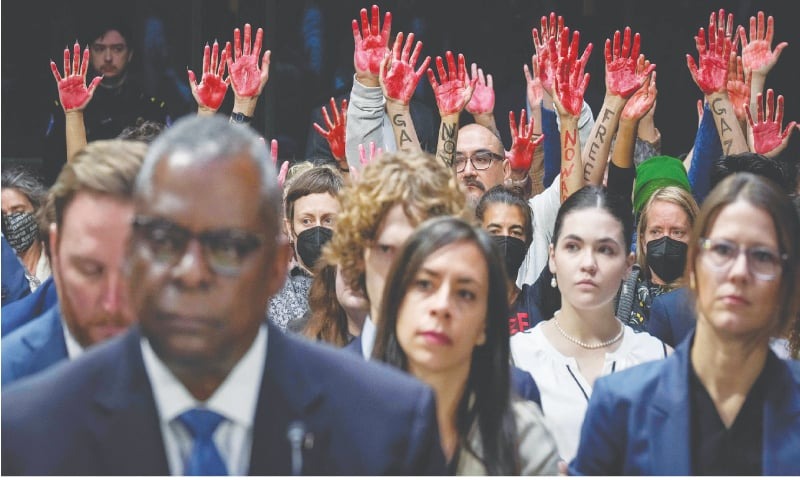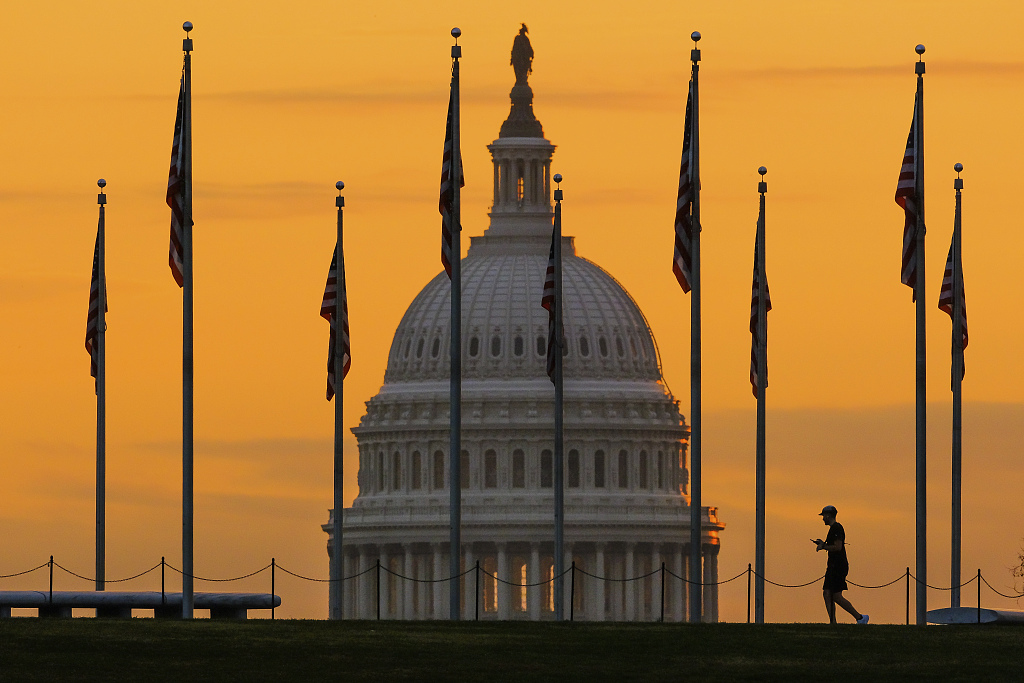In a dramatic turn of events at the U.S. Senate Appropriations Committee briefing, anti-war protesters voiced their vehement opposition to the Biden administration’s request for additional funds to support ongoing conflicts in Israel and Ukraine. Secretary of State Antony Blinken and Secretary of Defense Lloyd Austin were testifying on Tuesday when a line of demonstrators from an organization called CODEPINK raised red-stained hands in Congress, symbolizing their call to end the bloodshed. Shouting “Ceasefire Now, Protect the Children of Gaza, and Stop Funding Genocide,” the protesters were forcefully removed from the room. This incident highlighted the growing dissent surrounding the U.S.’s role in these conflicts.
Protesters Decry Funding for Wars
The Senate Appropriations Committee convened to discuss the Biden administration’s request for an additional $106 billion in funding, including $14.3 billion allocated to Israel and $9 billion for humanitarian relief, encompassing both Israel and Gaza. CODEPINK, the organization behind the protest, claimed that numerous members, including 29-year U.S. Army veteran and former diplomat Col. Ann Wright and peace activist David Barrows, were arrested for their actions. The red-painted hands, which they described as a symbol of bloodshed, were meant to convey their vehement opposition to the ongoing support for the conflicts in Israel and Ukraine.
Calls for Ceasefire Gain Momentum
While Secretary Blinken did not directly respond to the protesters during the hearing, he later addressed the possibility of a ceasefire, suggesting that a pause for humanitarian reasons could be considered, but emphasizing concerns that it might aid Hamas in regrouping. This comes amid mounting calls for a ceasefire from various quarters, including prominent Jewish intellectual Thomas Friedman, who wrote in a New York Times column, “Israel, it’s time to consider a ceasefire.” Thousands of Jewish peace activists across the U.S. echoed these sentiments, demanding an immediate ceasefire and justice for Palestinians.
Rabbi Alissa Wise, a rabbinical council member with Jewish Voice for Peace, described her daily struggle, saying, “I wake up every single morning with tears in my eyes, rage in my heart, and I channel it into action.” Last week, thousands of Jews and peace activists marched on Capitol Hill, carrying Palestinian flags and rallying for Palestinian rights. Rabbi Wise led a sit-in with hundreds of activists inside one of the Capitol buildings, organized by Jewish Voice for Peace and IfNotNow, two of the largest U.S. Jewish groups advocating for a just and peaceful resolution to the Israeli-Palestinian crisis.
Impact on U.S. Public Opinion
The protests, both large-scale and disruptive, have not gone unnoticed, as recent opinion surveys indicate a notable impact on American public opinion. While a News-Nation/Decision Desk HQ poll revealed that 49% of respondents sympathized more with Israelis, 10% expressed more sympathy for Palestinians. Another 26% said they sympathized “about equal” with both sides, and 15% were unsure.
Crucially, younger voters aged 18-34 were more likely to express sympathy for the Palestinians, with 24% aligning with their cause. President Biden’s handling of the conflict received mixed reviews, with 52% of Americans approving and 48% disapproving. As these calls for a ceasefire intensify and U.S. public opinion continues to evolve, the administration faces increasing pressure to address its stance on these ongoing conflicts.
















